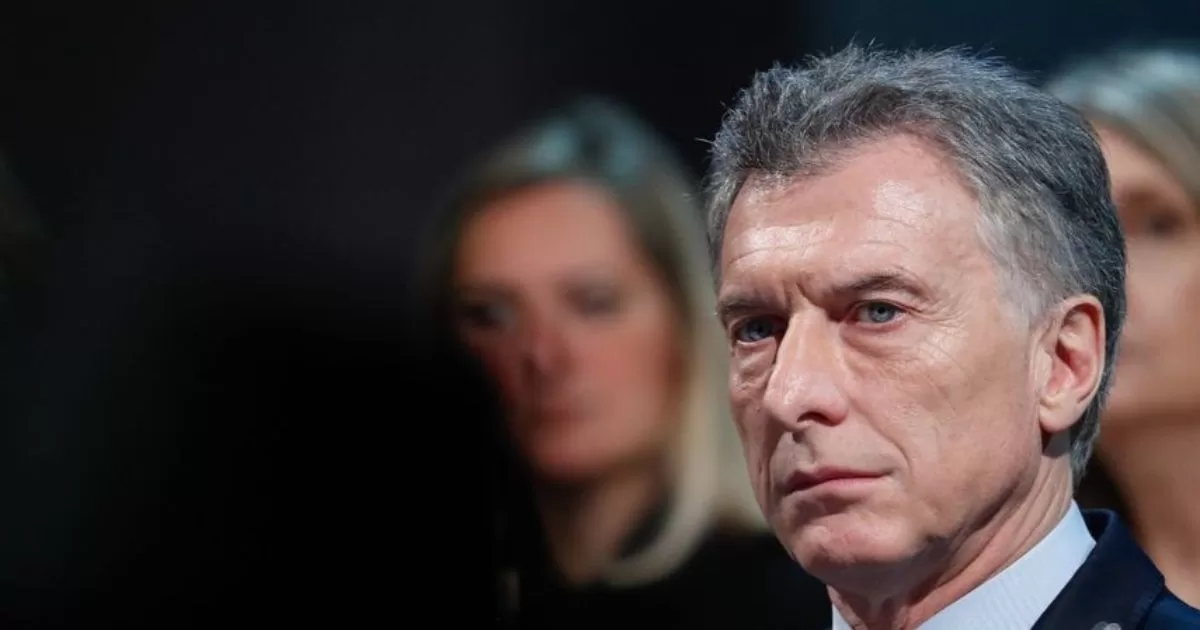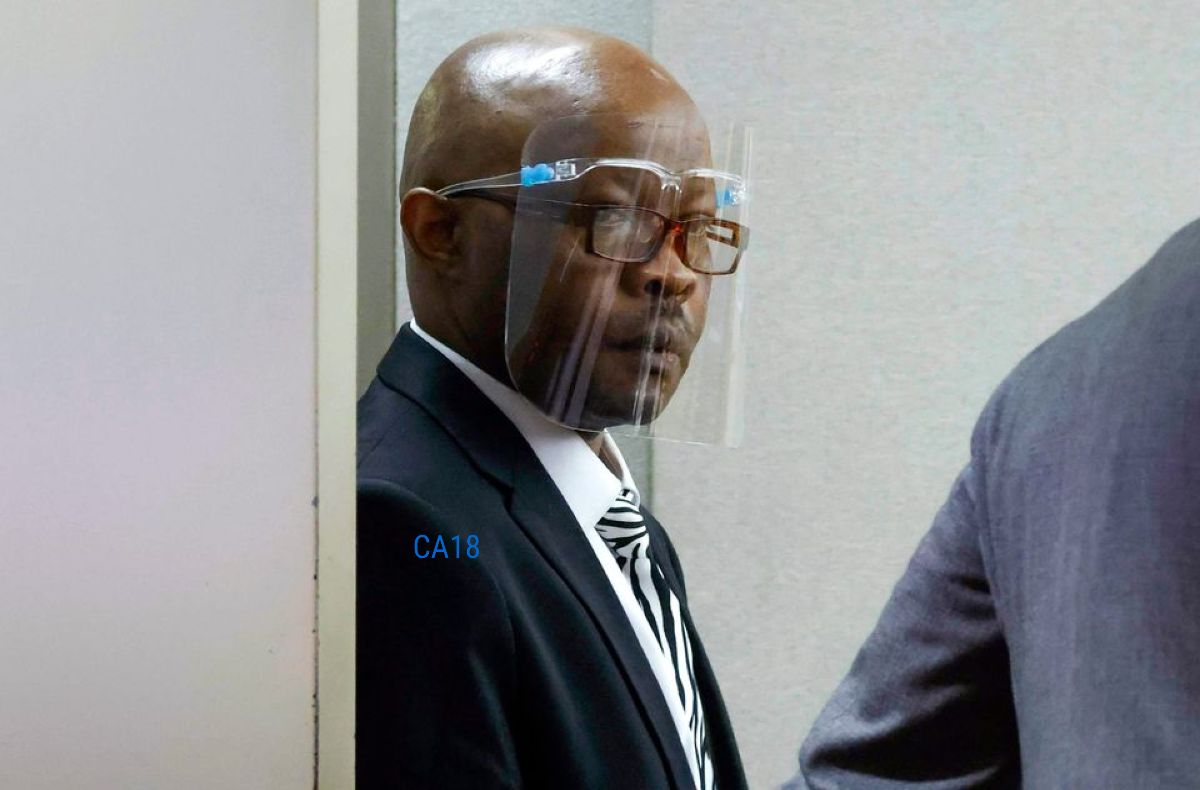On January 8, federal judge María Eugenia Capuchetti suspended the process against Macri and former officials of his cabinet – she dismissed, in legal terms -, for the so-called “Judicial Table” case that promoted Kirchnerism against the Macrista government, in 2020. The ruling determined “the nonexistence of the crime.”
The sentence – the second in two years that favors the former president and which was appealed by the prosecution – puts an end to the so-called “Judicial Table” case (2018) which consisted of alleged pressure exerted by the government of Mauricio Macri (2015-2020) on judges, through telephone calls, visits and complaints to the Judicial Council, to obtain favorable decisions.
The accusation was one of the most controversial against the former president, sometimes accused of alleged irregular acts, never proven, by the Kirchner government of Alberto Fernández and his vice president Cristina Kirchner (2019-2023), who controlled the Argentine Judiciary, and It currently has a dozen cases open in 2022, according to local media. It would also be an expression of how the Argentine justice system sought to accommodate changes in the midst of polarization, political observers point out.
Case against Mauricio Macri, non-existent crime
The federal judge of Argentina was forceful in her ruling when considering the testimonies of the supposedly pressured judges. “All the judges gave their testimony when they were formally summoned on all occasions long after the alleged pressure had ended, or after having intervened in the files that motivated the alleged improper interference, or even after the administration that had been planned had ceased. such interferences.”
And he continued: “Their testimonies were coherent and consistent with each other (…) which shows that they were not unduly influenced or that the pressures did not have a significant impact on their decisions,” states the ruling, cited by The nationwhich concluded that there was no crime.
The list of those who were dismissed (freed from charges) by Judge Capuchetti, in addition to former President Macri, includes former Minister of Justice Germán Garavano, former Legal and Technical Secretary, Pablo Clusellas; to the former representative and legislator Graciela Ocaña; to the attorney and representative of the Executive in the Council of the Judiciary, Juan Bautista Mahiques; to former minister Jorge Triaca and former presidential advisor Fabián “Pepín” Rodríguez Simón, who, according to local Argentine media, remains a fugitive from another judicial case.
The judicial process against Macri was promoted mainly by former president Cristina Kirchner, who was sentenced in 2022 to 6 years in prison for the crime of fraudulent administration during the 12 years in which she and her late husband, former president Néstor Kirchner, governed ( 2003-2015), but was later dismissed. In November 2023, the Buenos Aires Federal Chamber revoked the decision and reopened the investigation against him in the “K money route” case.
“A legend” of Kirchnerism
The Mesa Judicial case, which led to the dismissal, is described as a “legend” by political analyst Marcos Novaro, researcher at the National Center for Scientific and Technical Research and the Center for Political Research at the Gino Germani Institute in Buenos Aires, who affirms that the judicial process was kept open without foundation for a long time “due to pressure from the previous government.”
“That legend of the Table who pressured judges and who supposedly made lawfire against officials and relatives of Cristina Kirchner has been falling apart because the trials really advanced and there was no evidence that there was manipulation, even though the accused had resources and opportunities to obstruct justice. Although that does not mean that there have not been operations,” she points out.
For Novaro, the offensive by the “hardest” Kirchnerism in the complaint about alleged espionage by Macri that ended with dismissal (cessation of the process) and that he considered a “maneuver to put Justice against him” was also “evident” in 2020. of his adversaries and thus dilute the operations of the corruption cases against them,” as he told the media on that occasion.
Other accusations for similar reasons were promoted by Kirchnerism in 2009, when Macri served as head of Government of Buenos Aires, and then as president of Argentina, but they all culminated in the judicial files with a final ruling of dismissal when it was established that there was no crime. , even in 2022 when his government had ended.
Instrument used in Argentina
Also, the former vice president of the Financial Information Unit during the Macri government, Eugenia Telerico, is convinced that Kirchnerism, which remained in power for 13 years, used justice as a political weapon.
“There has never been a ‘Judicial Table’ like the one revealed by some accusations made by those who have very serious pending criminal investigations behind them for corruption crimes from 2003 to 2015, in principle, and that respond to Kirchnerism,” says criminal lawyer Telerico. .
He indicated that some of these cases managed to advance, not because of the alleged judicial persecution, but because of manifest international cooperation “like Argentina had never received” in the investigation into the money routes in corruption cases, from which the Financial Unit received information, he says. He indicated that the information about those cases was hidden by Kirchnerism from justice. “There are cases of deleted servers, missing documents and organizations dissolved,” he said after ensuring that Cristina Kirchner “continued to put a lot of pressure on the Judiciary, attacks on the Supreme Court of Justice and manipulations on the Judiciary.”
He considers it satisfactory that, with the change of government, the information is released and citizens receive a response from the justice system regarding the accusations against the government of Mauricio Macri, who has not yet issued an opinion.
(email protected)
Source: With information from La Nación, Clarín, and interviews with Marcos Novaro and Eugenio Telerico


